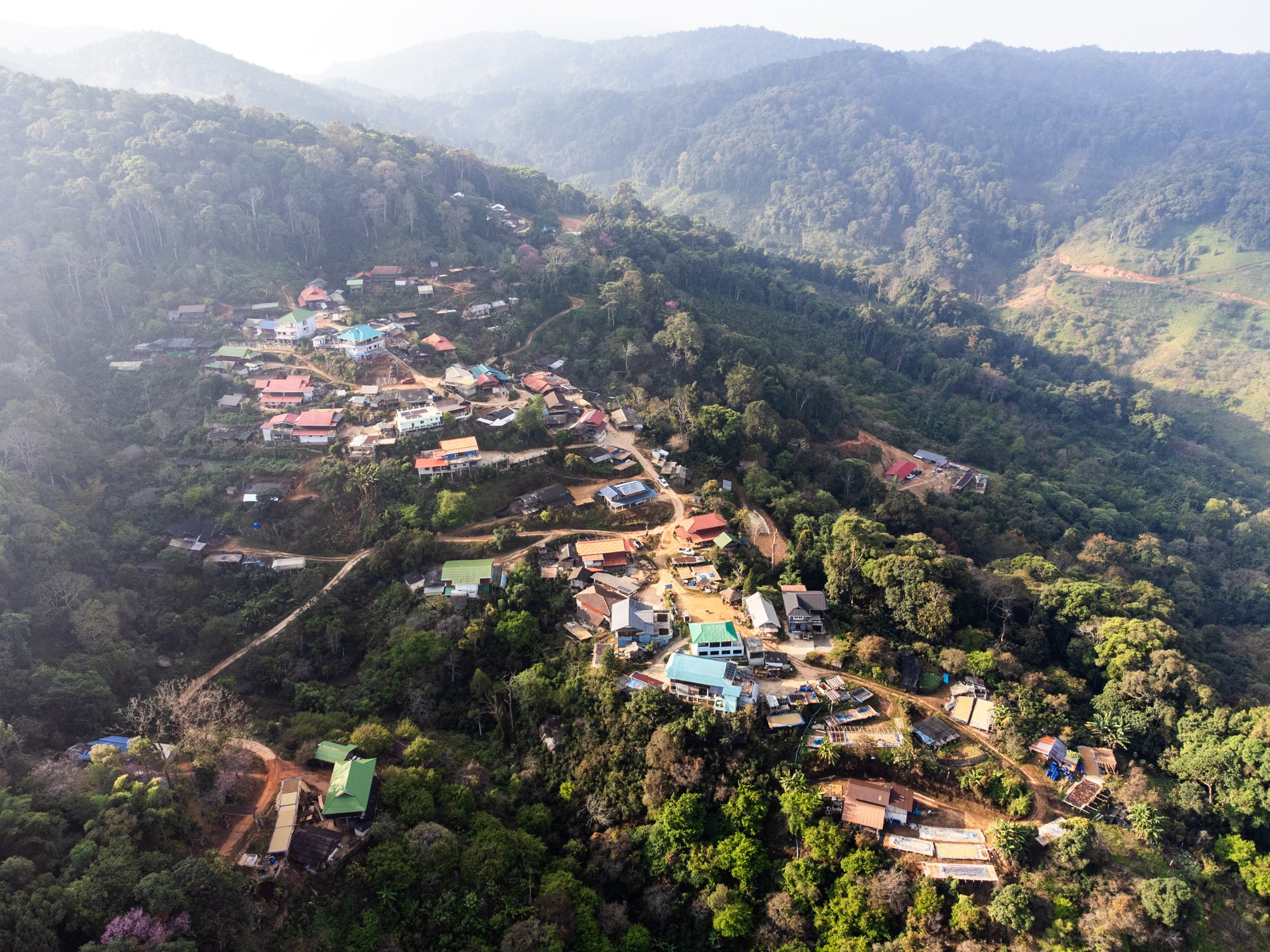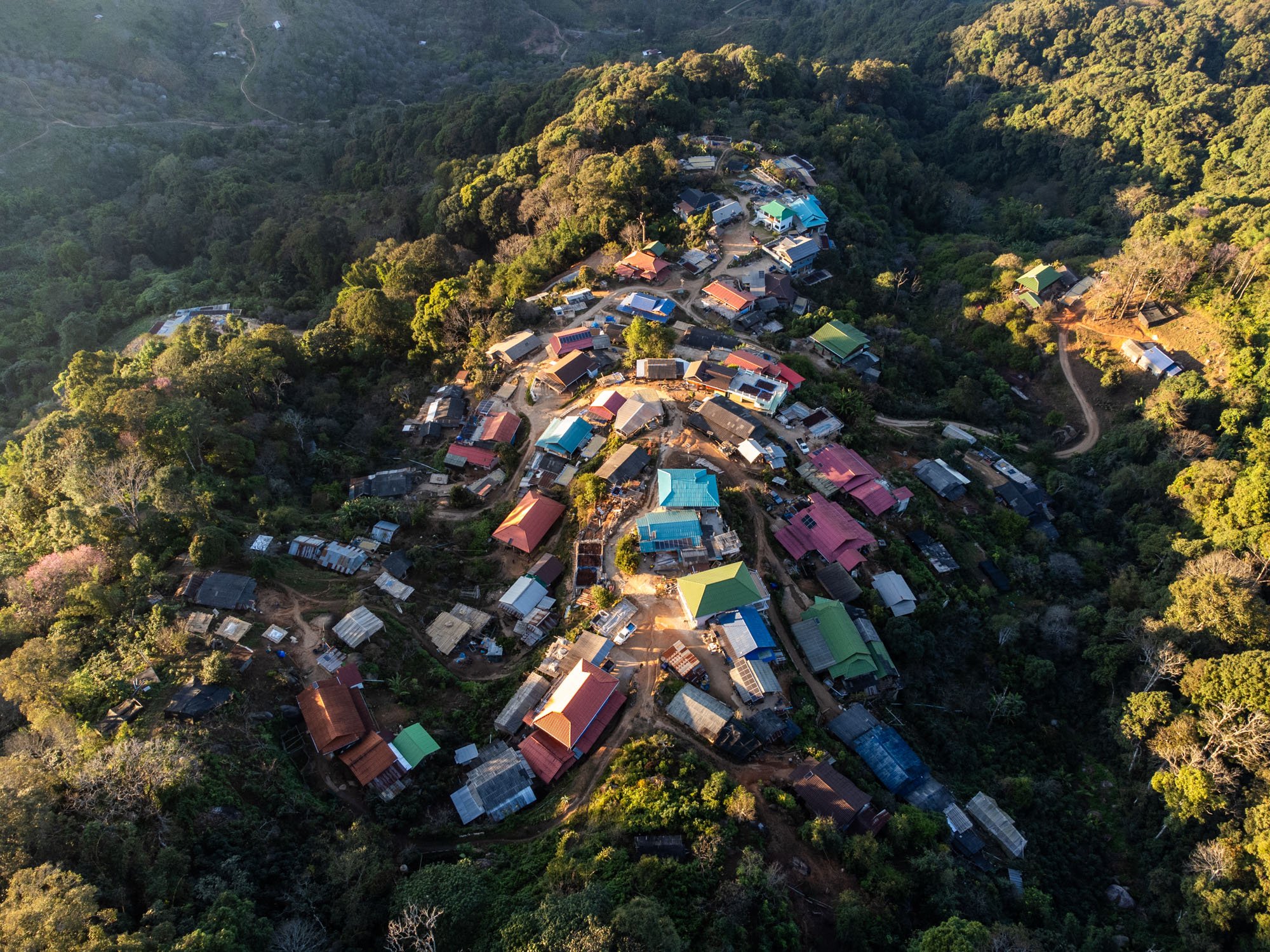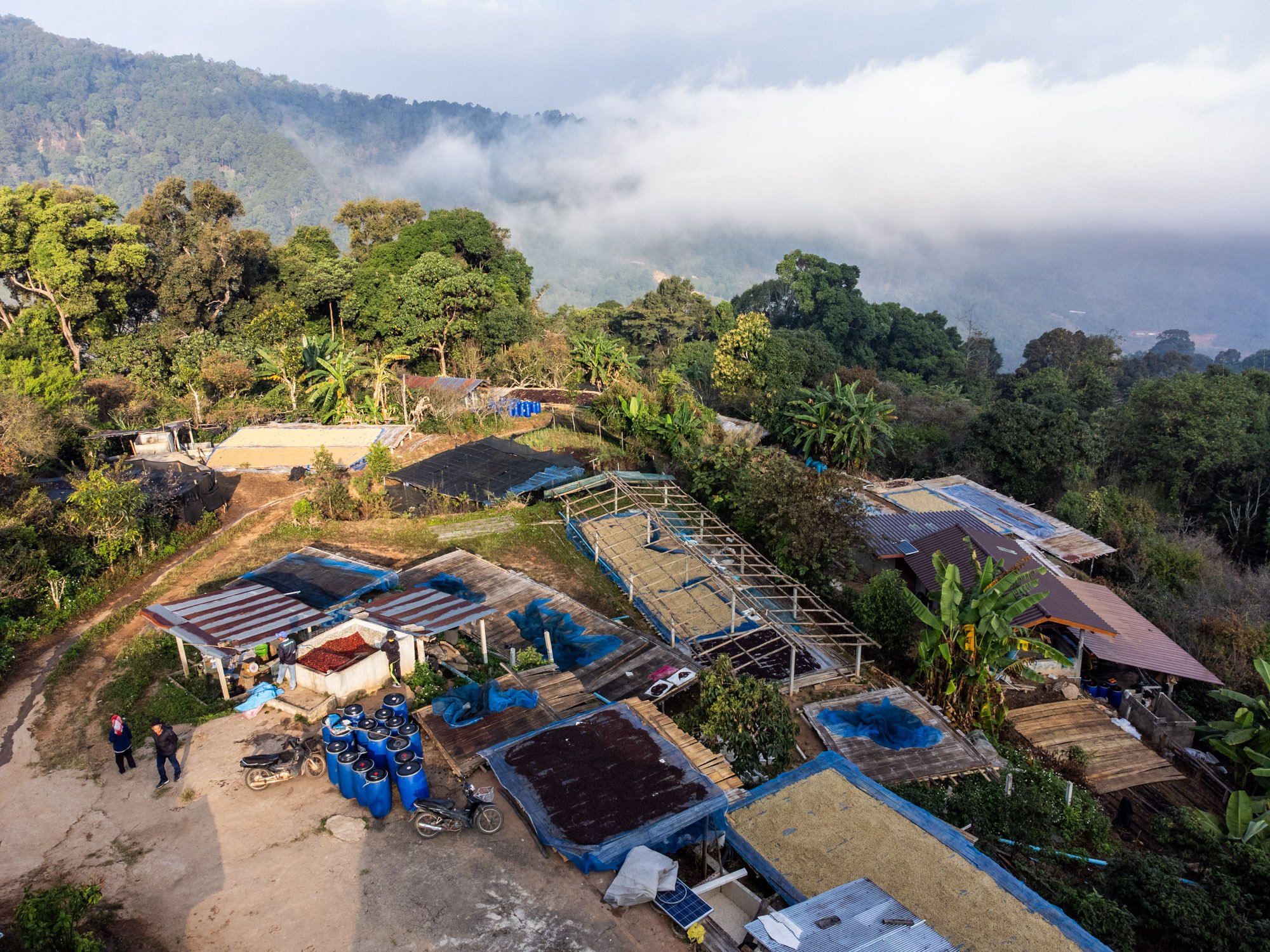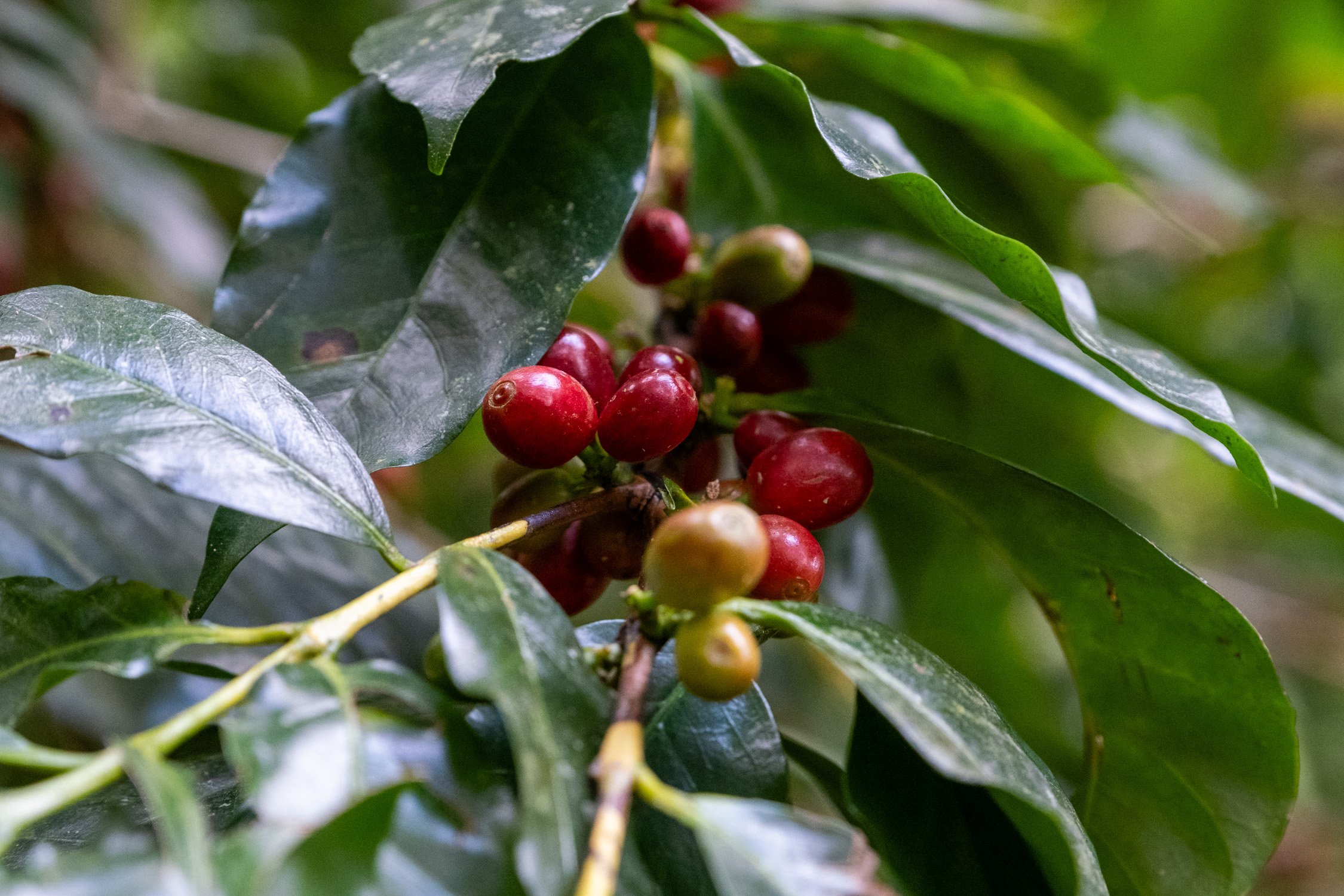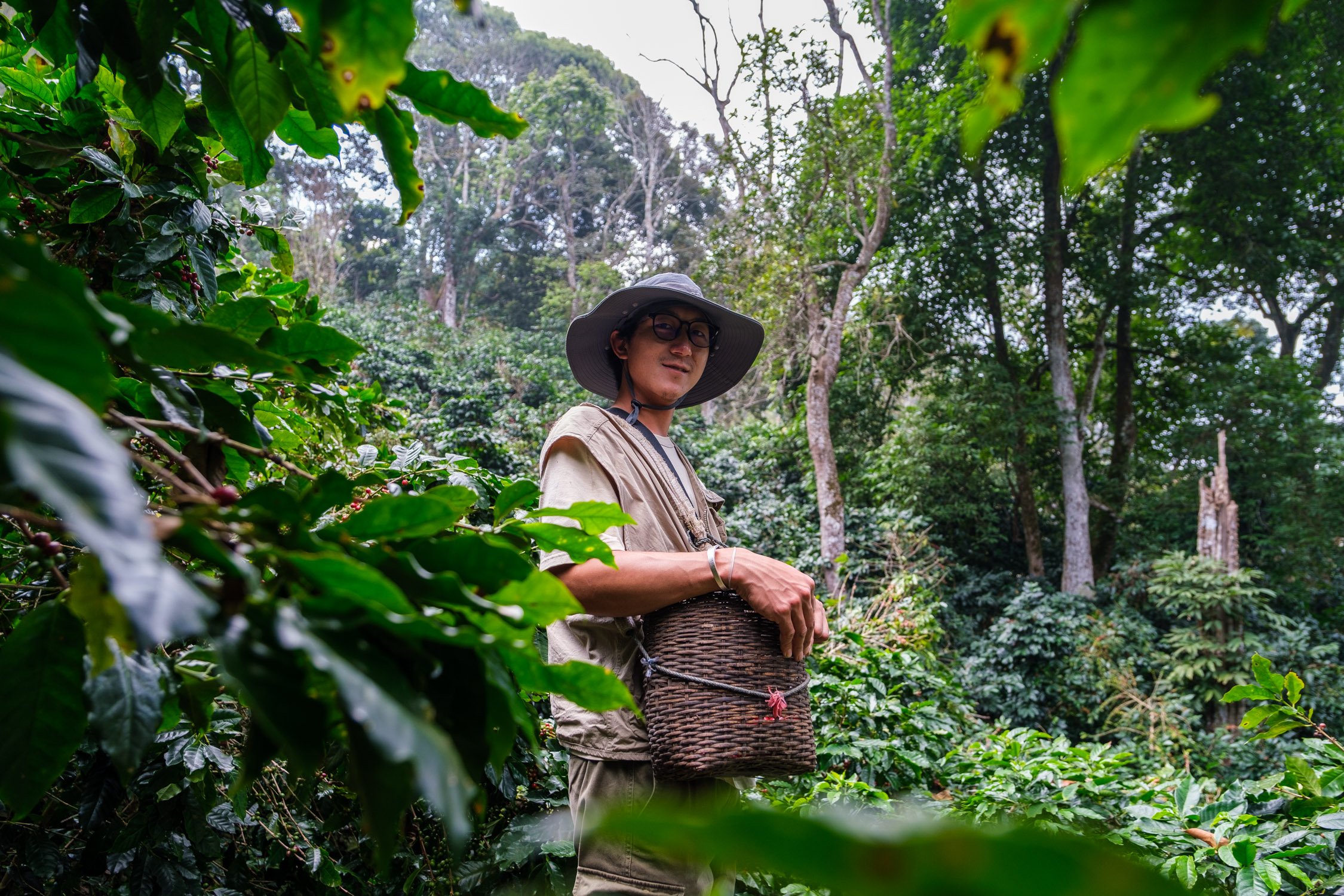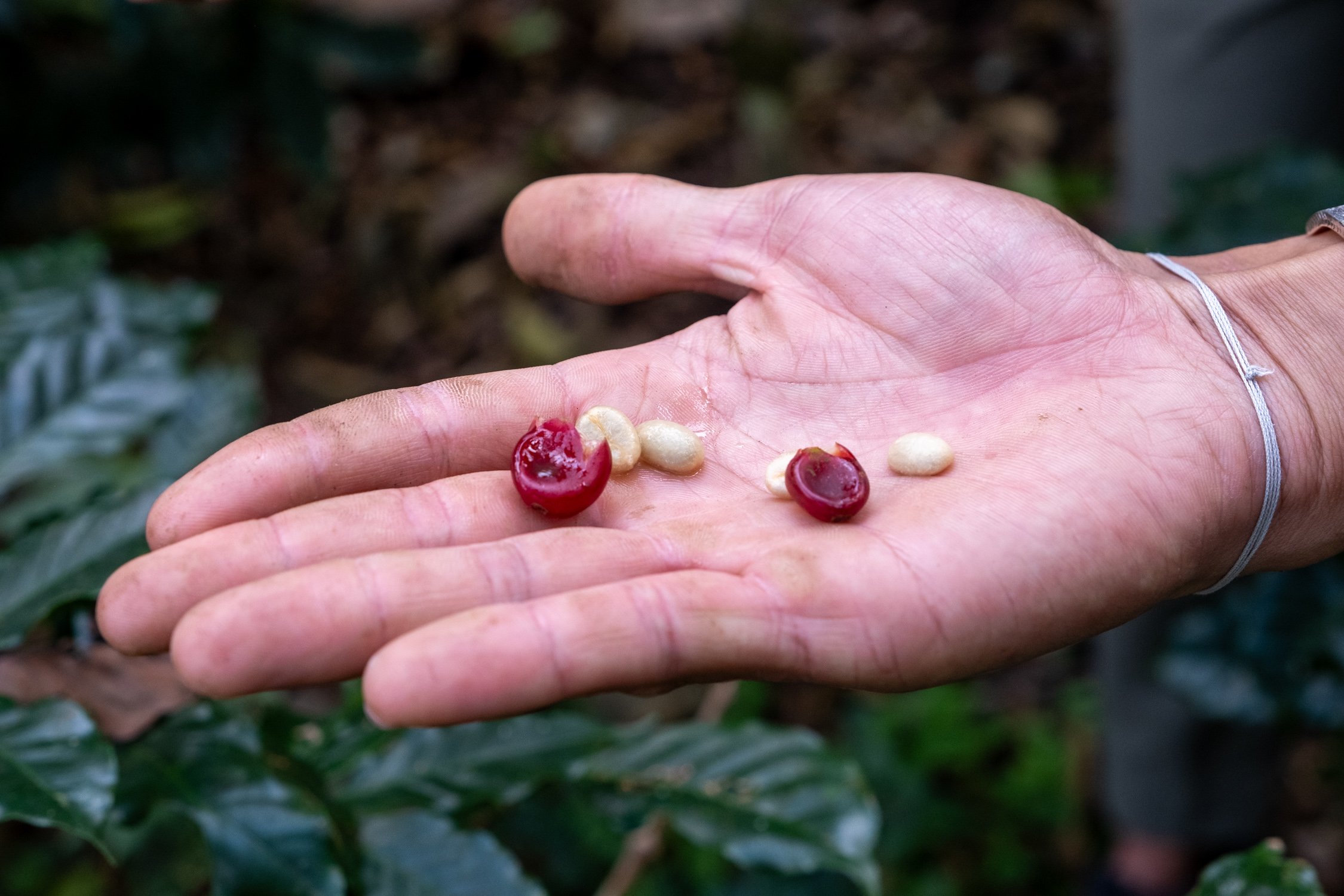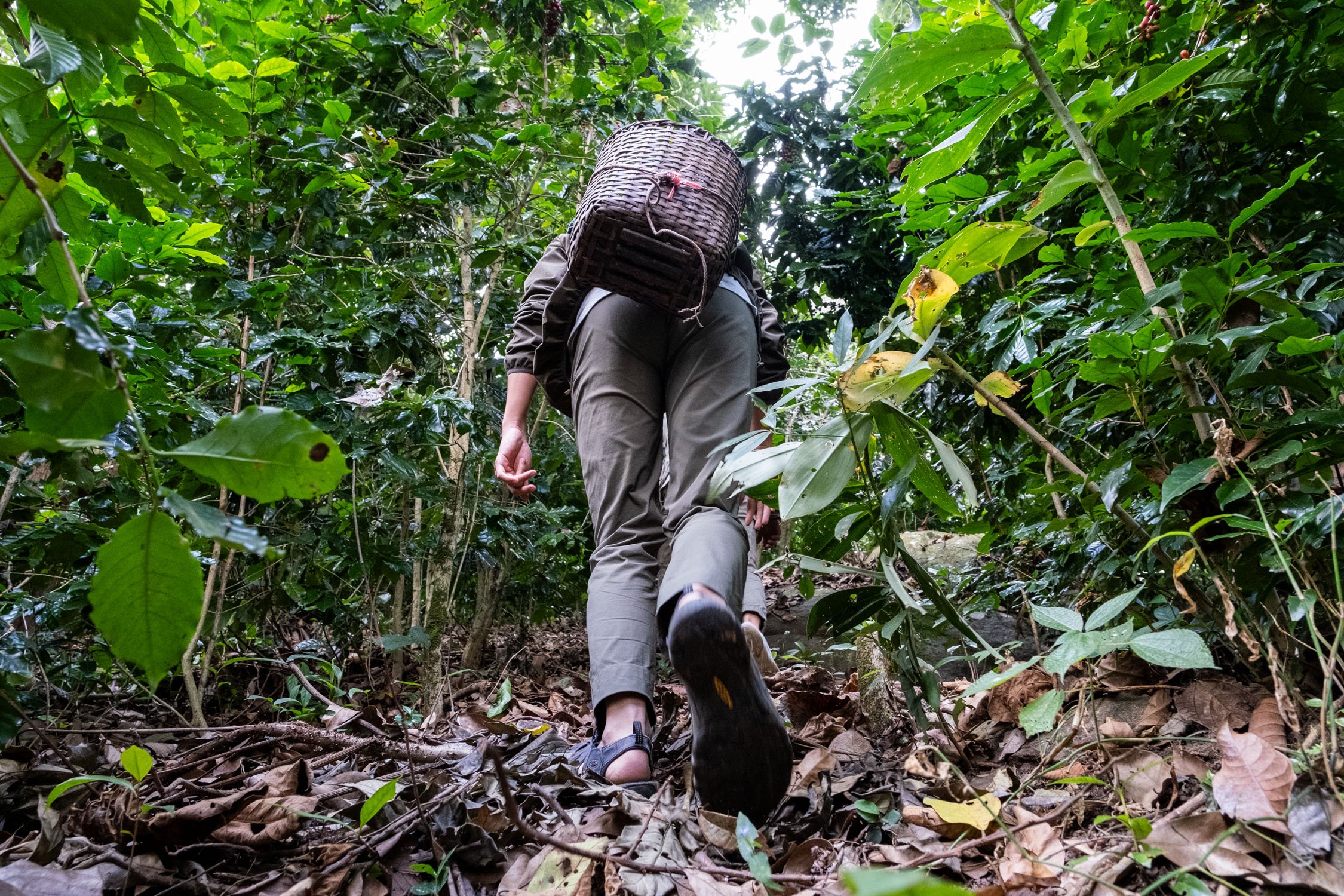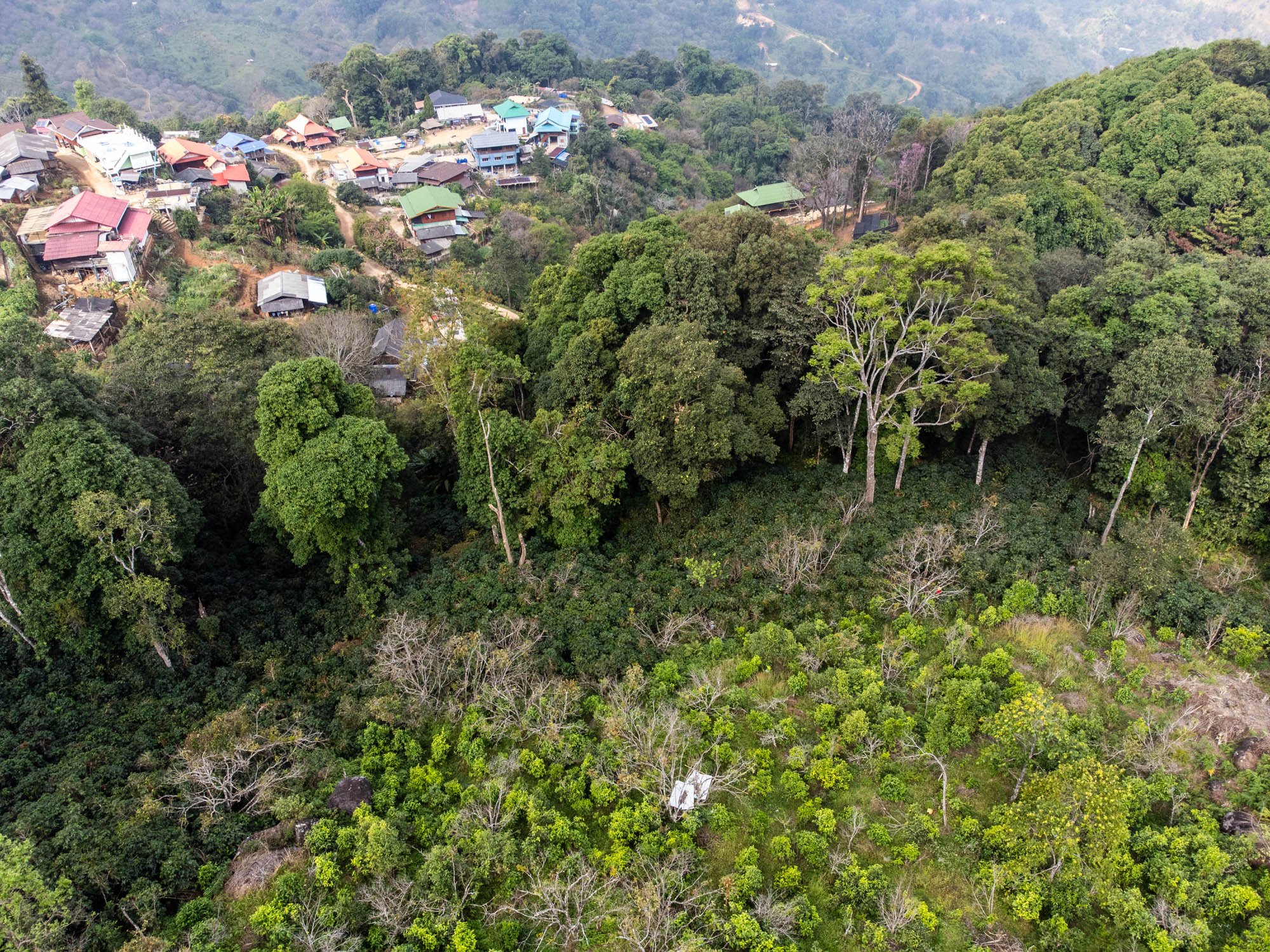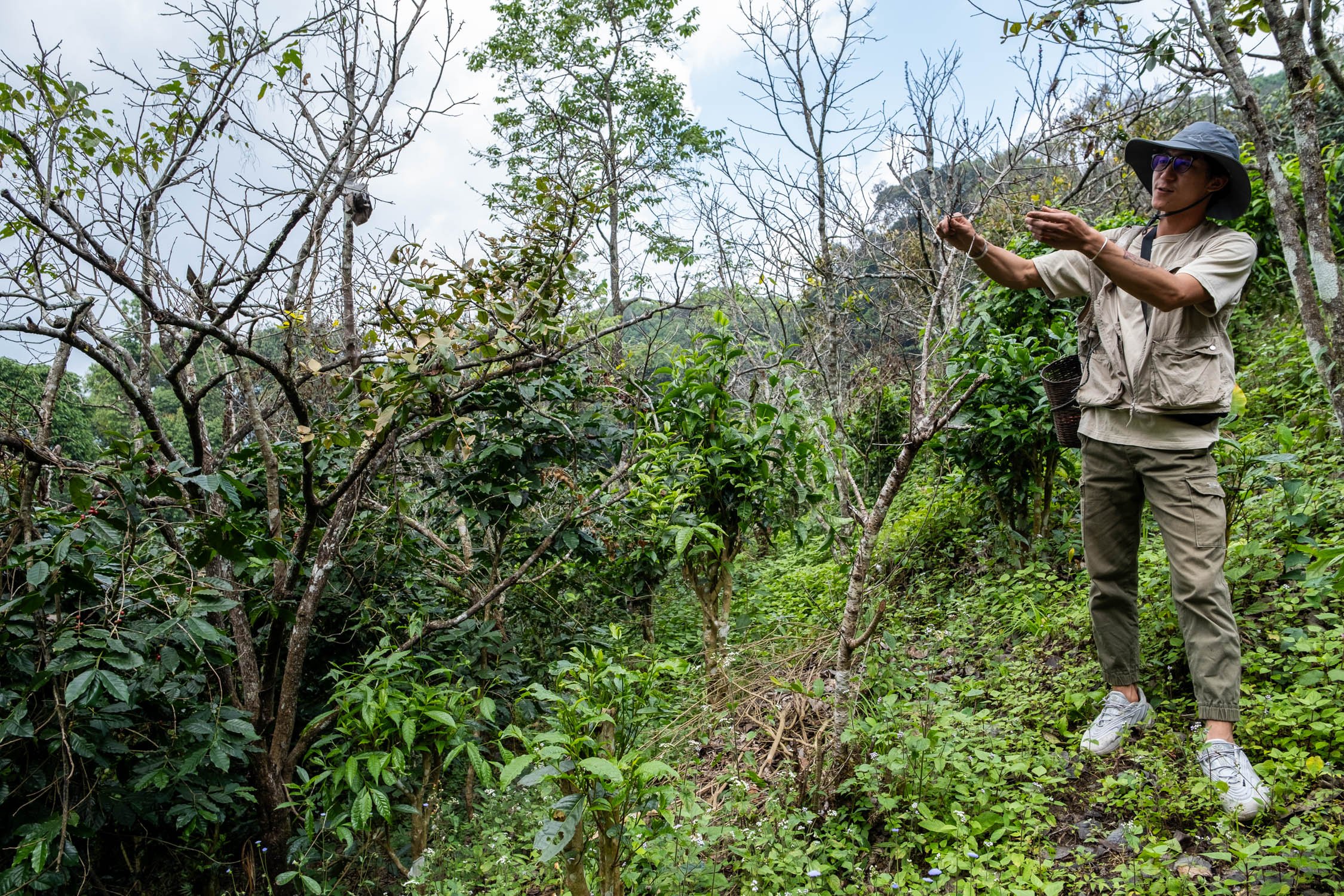Coffee: from mountains to the cup - Mae Chan Tai village, Chiang Rai
Mae Chan Tai coffee:
from mountains
to the cup
Perched high in the mountains to the west of Chiang Rai is Mae Chan Tai village, which grows some of the best coffee beans produced in Thailand. Accessible only through a 3km mountainous dirt road that becomes very treacherous in the rainy season, the village’s electricity is supplied entirely through household solar panels, and from 1500 metres of elevation it commands impressive views of the valley below.
Mae Chan Tai is an Akha village of 43 households and nearly 230 people. The Akha tribe is an ethnic group that originated in China, and is now one of Thailand’s typical hill tribes. Hill tribes are some of the most disadvantaged groups in Thailand, and historically, those living in the Mae Chan Tai village produced opium as a primary crop and source of income due to its remote location and complex topography that made traditional agriculture difficult. Now, however, every household in the village grows coffee for a living, and the village is considered a model for both Akha development and environmentally sustainable development. This is, in part, due to the creation of a social enterprise between Mae Chan Tai village and the Japan-based General Incorporated Association for the Promotion of Self-reliance in Asia (GIAPSA). The enterprise supports the village in growing high-quality beans – typica, caturra, yellow-bourbon, catimor, and most recently gesha - and provides pathways to markets for the coffee when it’s grown. This includes a cafe in Sathorn called ‘Akha Mae Chan Tai Coffee Shop’ that is co-owned by the village community enterprise and GIAPSA as a joint social business venture, and exclusively sells beans from the village.
The village runs a full coffee production process - starting with producing the beans. Coffee, tea, and fruit trees are grown in bands of crops inside the mountain forests close to the village. Within these bands, coffee is grouped and grown by different types of beans for ease of collection.
Picking and caring for the coffee trees and beans is a demanding task that requires year-round attention as workers trek through the forest picking the beans by hand. No pesticides are used on the trees, which means the farmers place a priority on types of trees that are naturally hardy and resistant to disease.
Once coffee beans reach the village, they are processed in different ways - dry processed, washed, honey processed, or semi-washed. Every house has a spread of nets outside for drying the beans, and the village also has the facilities to roast beans before they are sent off for packaging; roasted beans command a much higher price as they are ready for consumption.
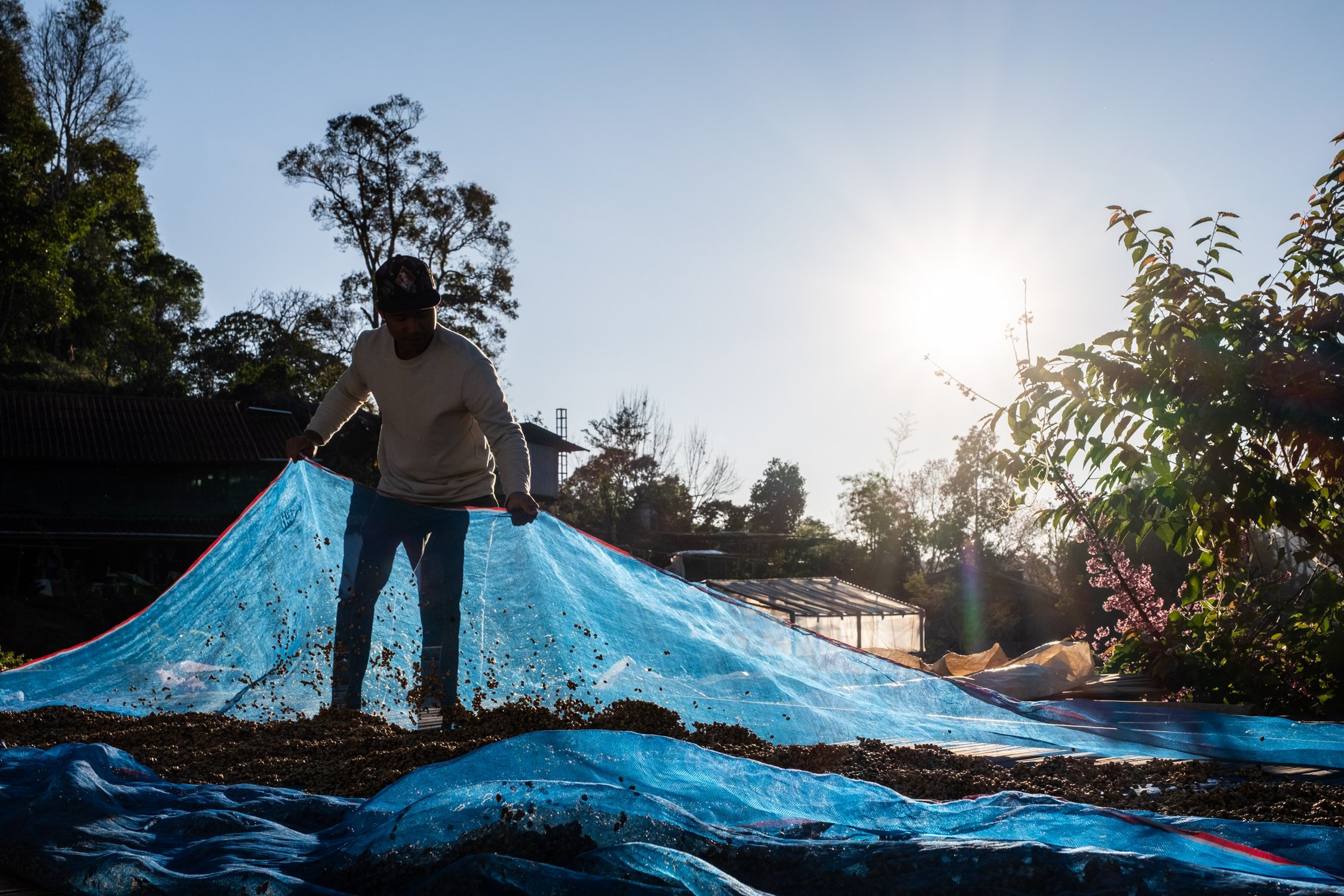
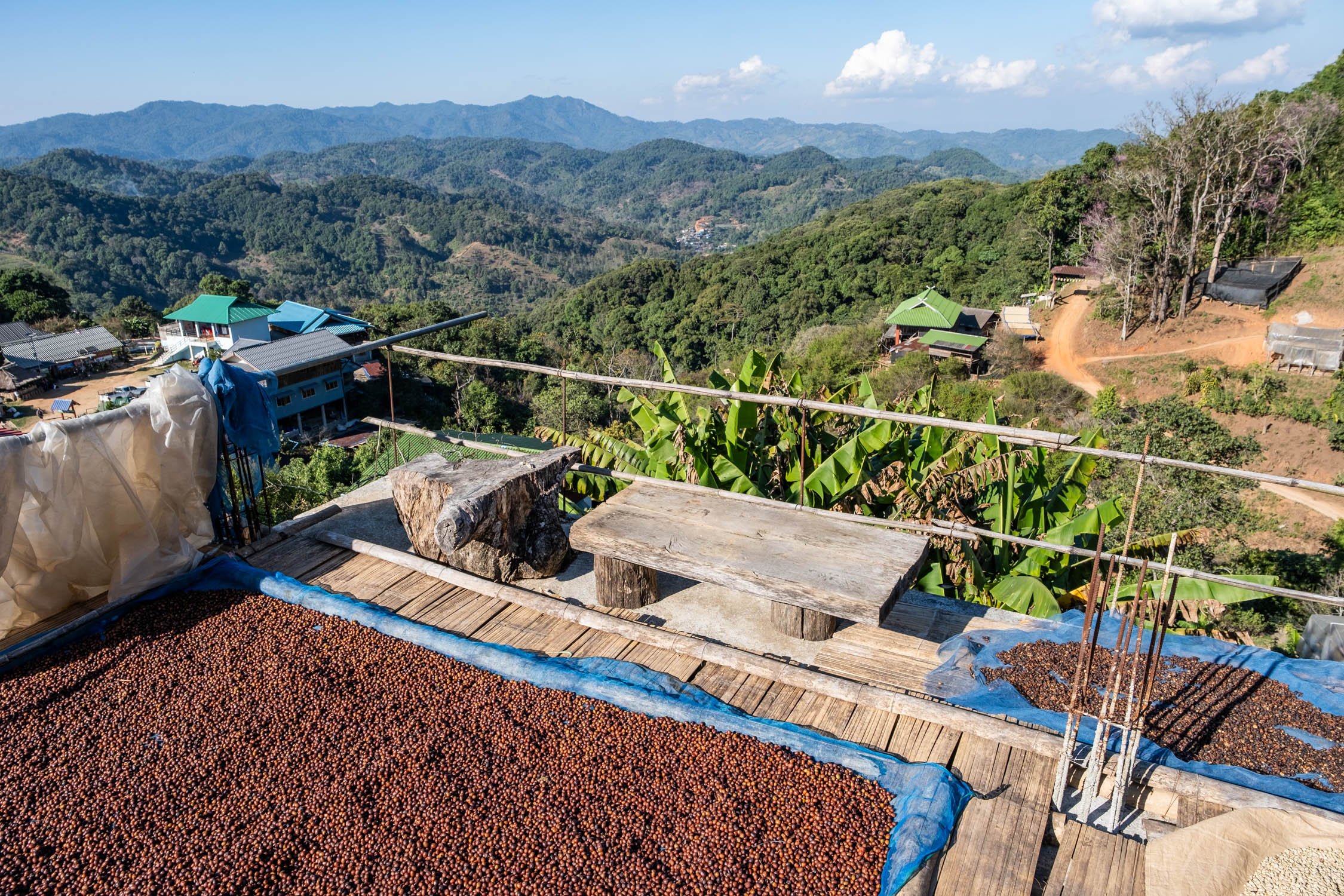
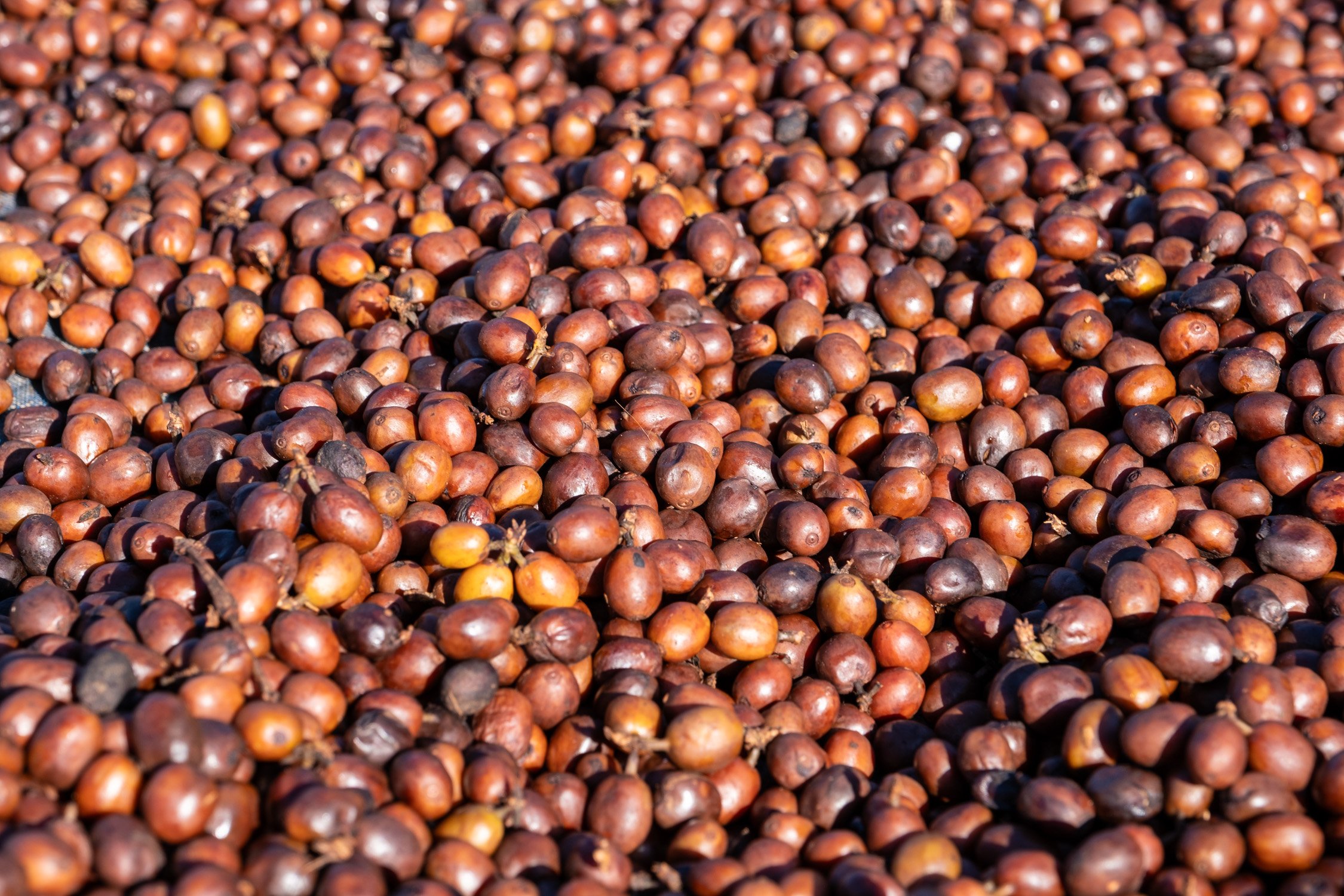
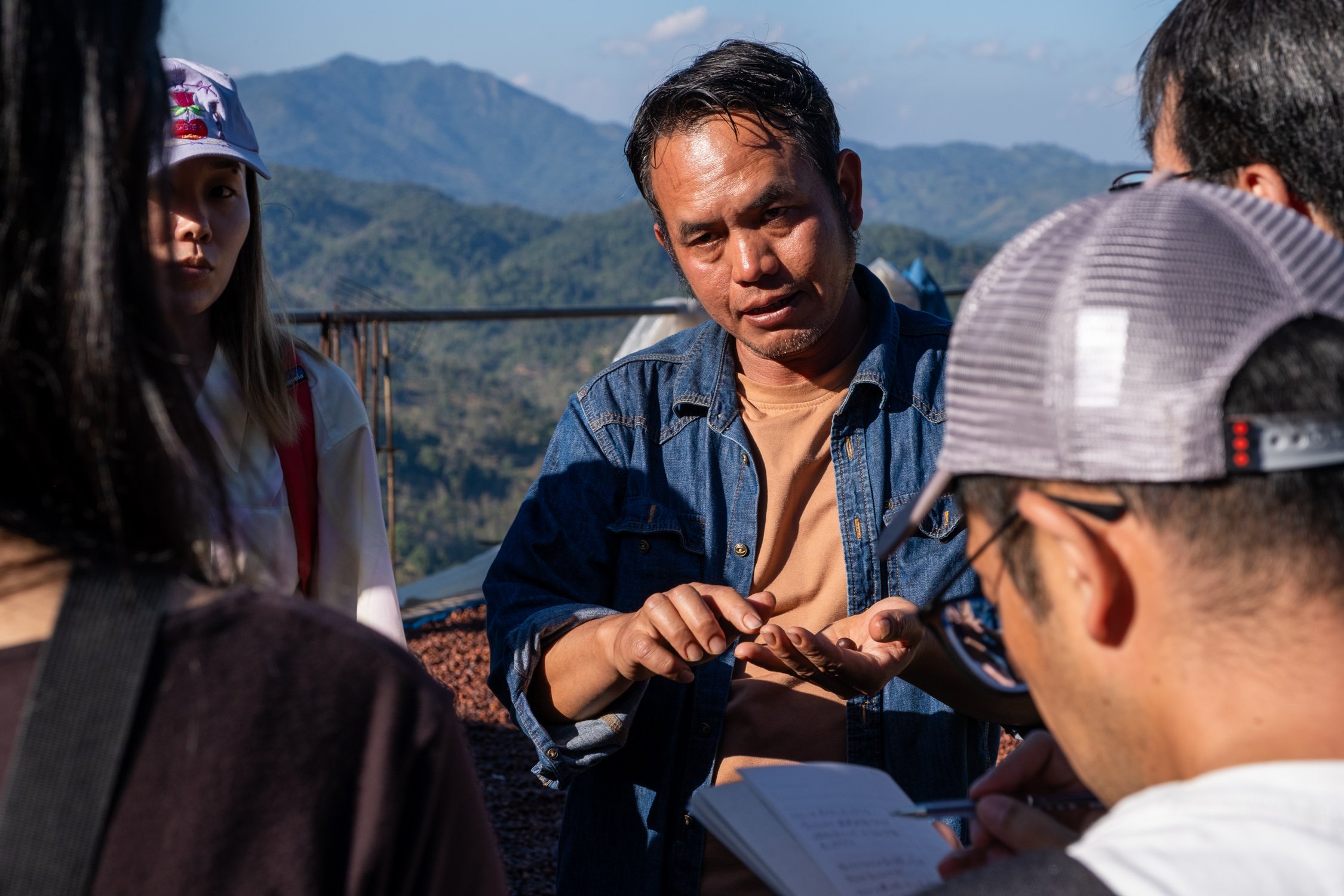
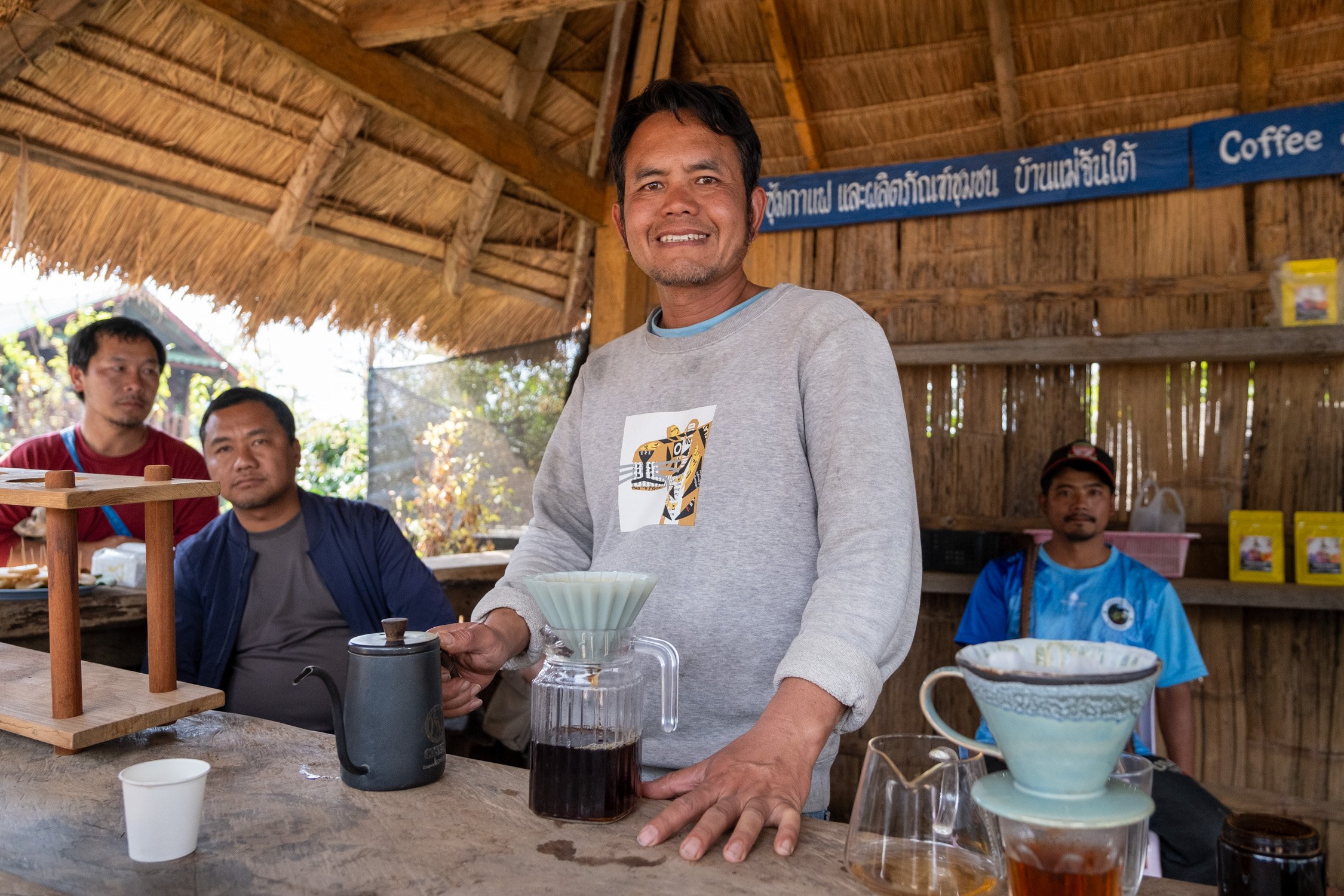
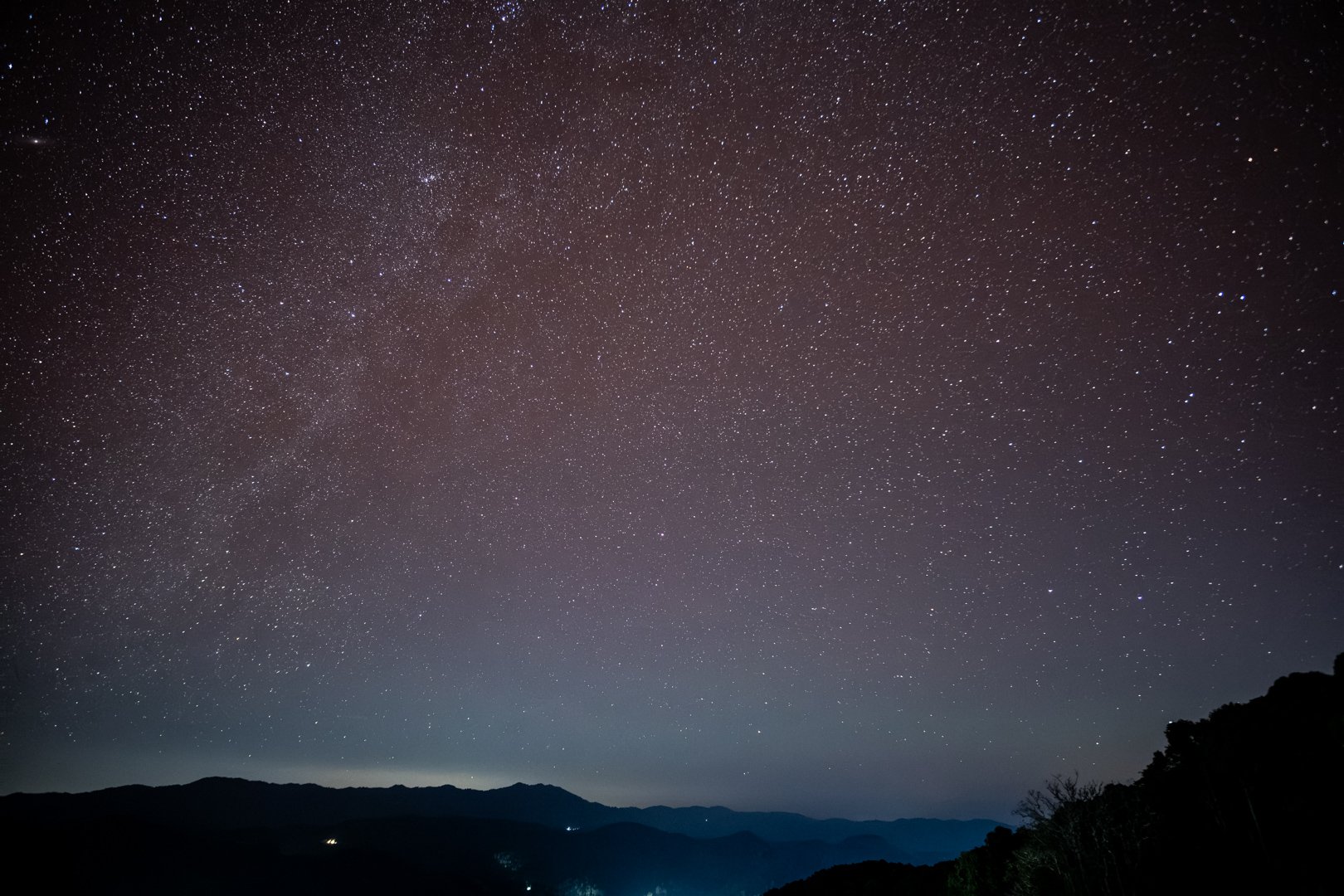
With every household in the village growing coffee and the technical expertise of the villagers increasing every year, Mae Chan Tai beans have placed highly in both national and international competitions, and the villagers have become pour-over fanatics (milk and sugar are strictly forbidden).
Mae Chan Tai village welcomes visitors - if you’re reading this and are interested in learning more about Thai coffee, contact the cafe and they can put you in touch. Being more connected with the products we consume daily can only make us more mindful of our consumption, the impact it has on the environment, and the huge amount of effort that goes into making these products.



